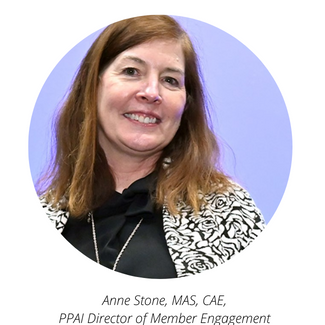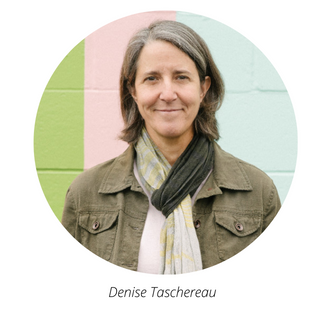Learning From An Industry Leader In Sustainability

I recently had the privilege to sit down with Denise Taschereau, a member of the PPAI Board of Directors and the CEO and co-founder of Vancouver-based distributor Fairware. Denise is one of the pioneers of sustainability in the industry.
Despite developing the secret sauce of corporate social responsibility that drives her business, Denise is remarkably generous in sharing the recipe.
Before she launched Fairware, Denise served as the director of sustainability and community for Mountain Equipment Co-op, Canada’s largest outdoor retailer. A significant part of her role was overseeing the company’s environmental programs and community grant-making, and she was struck by how difficult it was to get promotional products that reflected MEC’s sustainability values.
Realizing this challenge was not unique to MEC, Fairware was born with a mission to source promotional merchandise that reflects the social and environmental priorities of the brands and organizations she admires.
It’s not an easy task now, but it was significantly more difficult back in 2005.
Part of Fairware’s magic formula is doing the research to protect the client’s brand. And they don’t focus exclusively on sustainability. They examine all the CSR pillars – diversity, equity and inclusion; community impact; and environmental responsibility – to make sure the products align with the client’s brand and values.

I shared with Denise my concern that when it comes to sustainability in the promo industry, not every PPAI member is prepared with the right product and message to compete on the CSR stage. There are likely to be winners and, unfortunately, there are likely to be losers as well.
Perhaps unsurprisingly, while sharing the concern, Denise had a very pragmatic response: The idea of winners and losers is not unique to CSR. There will be winners and losers relative to digital transformation as well. Companies that embrace technology are going to win, and those who don’t will lose. CSR, technology, business strategy and all the things that drive innovation and resilience will position companies to be more successful and relevant.
Denise is most concerned about our industry ending up on the wrong side of history. She rightly doesn’t want our industry to be perceived as out of date, out of touch and unsustainable.
This isn’t related only to sales – it also applies to your recruiting potential. If you don’t evolve, you will be left behind by clients, which everyone fears. But more importantly, you will lose the talent war and be unable to attract younger, cooler and more interesting people to your team.
Denise gave me a key piece of advice. She warns that if you are going to go down this road, you have to invest in the process, noting that this is not a marketing initiative – it must be baked into your organization’s DNA and operations. Savvy clients expect you to know how a product is made, where it’s made, what it’s made of, who made it and how they are treated, and what happens to it when you are done with it. Gathering and maintaining this data takes commitment.

There are many roads to incorporating CSR as a fundamental element of your business. One road is to decide it is a brand differential and go all in. But that is not the only option.
For most distributors, a more reasonable approach is to take small steps to curate products that align with your client’s brand.
Here are a few tips for you to begin sourcing products that reflect your clients’ brands:
- Use the FTC Green Guides as a script for what you can and cannot say.
- Conduct an internal review of your key clients and determine if CSR is reflected in their corporate values. If it is, identify the CSR pillars that are most relevant and begin aligning product recommendations with those pillars.
- Gather data about the products you sell. Start with the suppliers you do the most business with and begin to collect answers to the kinds of questions mentioned above.
- Ask your supplier partners to indicate what they are particularly proud of and tell those stories to clients. Denise is quick to say there is no perfection in the journey toward sustainability. However, the scrapes and hiccups are powerful stories in the journey to improve.
- Begin to analyze your own corporate footprint. This alone will make you more sensitive to the environmental impact of the products you source for your clients.
There is no easy button for CSR. It takes time, it takes effort and, just like product responsibility, it is a journey, not a destination.
But it is a journey of continual improvement that at the end of the day will benefit your client, your conscience and your planet.
Stone is the director of member engagement at PPAI.

